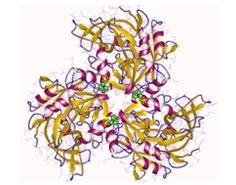More than 2/3rd of oral cancer patients are diagnosed when they are in a locoregionally advanced stage. Presently neoadjuvant chemo therapy (NACT) is randomly given to these locally advanced patients to shrink the tumour and make it re-sectable. The data from our Tata Hospital suggests that around 30% of oral patients positively respond to NACT, indicating that around 70% of patients go through the drug related side-effects, additionally have to bear the cost of drugs. Considering the fact, this study is aimed to identify protein markers for the selection of patients for NACT. For this study, we have selected five bio-markers, -p53 (tumor suppressor gene), Tubulin β II (cytoskeletal proteins associated with drug resistance), glutathione s-transferase pi (detoxifying agent), ERCC1 [(excision repair cross-complementing) DNA repair gene], and Bcl-2 (anti-apoptotic protein). We have retrospectively collected paraffin blocks of biopsy samples taken before NACT from Pathology Department of TMH and will perform IHC for above said five proteins. Clinical investigators will collect post therapy information related to the tumour diameter and experienced side-effects of therapy (eg. Nausea, vomiting, fatigue, diarrhea, microsites etc.). On the basis of this information, patients the patients will be categorized into 4 categories such as-complete response, partial response, progressive disease and stable disease. IHC staining intensity score will be statistically correlated with patient’s clinical information to evaluate predictive value of selected NACT markers.


